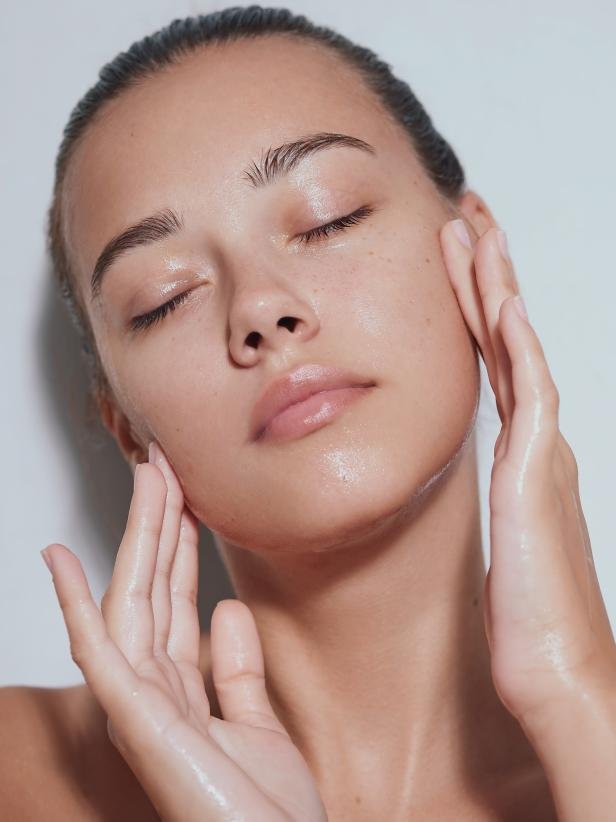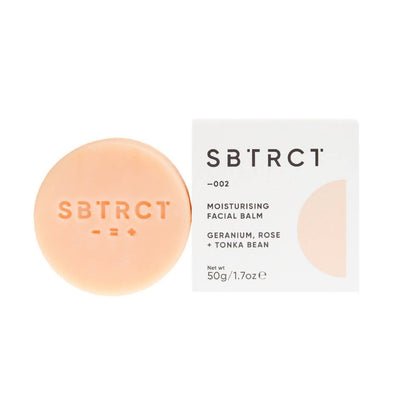Is Solid Skincare The Future of Sustainable Beauty?
Image courtesy of Sbtrct.
More often than not, when you think of skincare you probably envision beautiful aesthetic glass pots and jars, with delicate droppers and airtight pumps. In short, we think straight of the packaging; designed to deliver our traditionally liquid, cream and gel formulas for us to apply. It’s how the beauty industry has looked for so many years, but due to the rapid growth of solid skincare, is change coming?
According to market research company The NPD Group, sales of skincare in solid and stick format were valued at £2.4 million in the 12 months to the end of March 2022, with sales of solid facial cleansers increasing by 15% in that period. Think cleansing bars full of natural extracts, or solid serums that melt on contact with the skin. Thanks to brands like Drunk Elephant, Garnier and Typology taking solid skincare skincare mainstream with their latest launches, they are making sustainable beauty more accessible for all consumers, and proving it’s not just for the most dedicated eco-conscious shoppers.
Image courtesy of TLC.
The environmentally-friendly aspect is the most obvious advantage when it comes to solid skincare. Since the bars can be easily contained in recyclable cardboard, massively minimising the use of plastic used for packaging in products. LUSH was an innovator, and one of the first international beauty brands to feature no-package, solid, sustainable products for bath and body.
Grace, founder of award-winning solid skincare brand Sbtrct created the brand after noticing a gap in the market for more aspirational eco-conscious brands. Each of Sbtrct’s products come in a different shape and sorbet hue, and are housed in tastefully-designed compostable boxes.
Good storage is vital for the continued efficacy of solid skincare - especially with volatile ingredients such as vitamin C. Additionally, it’s also extremely important for hygiene. A big hurdle that many brands face in convincing consumers to get on board. Sbtrct sells reusable bamboo pots to ensure their leave-on bars are clean and protected from light. Both Sbtrct and Grüum make dishes from a highly-absorbent sedimentary rock called diatomite, which keeps cleansers dry and prevents bacteria from forming.
As solid skincare uses little to no water, the products are a fraction of the size compared to their liquid counterparts. Besides keeping packaging to a minimum, it also means they’re lighter and easier to transport, therefore generating lower emissions.
To help you in your search, below is a round-up of some of our favourite cruelty-free solid beauty and haircare products, available on the market right now.
LUSH Shampoo Bars - £9.00 available at www.lush.com
Ethique ‘In Your Face’ Cleansing Bars - £14
available at www.ethique.co.uk
Sbtrct Moisturising Facial Balm - £28
available at www.sbtrct.co.uk





